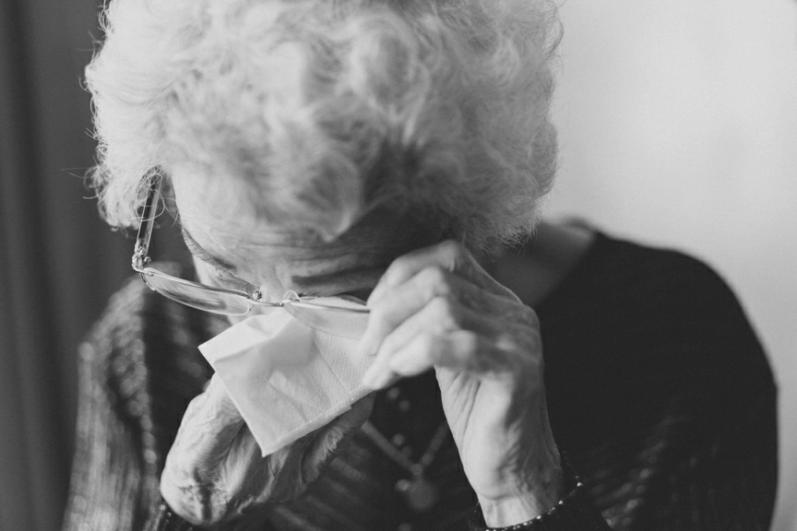A thief of Ordinary Times
He sat across the aisle from me on a long train ride years ago.
Like clockwork, his cell phone rang about every five minutes, and each time he and his caller had the same conversation. He would tell the caller patiently that he would be home soon, that he loved him, and that they would watch baseball on television as soon as they were together. Each time the man hung up his phone, he would look around sheepishly in hopes that this constantly repeated conversation did not disturb his fellow riders.
The few words he said, and many words he did not need to say, made it clear that he was a loving son caring for a father living with dementia.
November is National Alzheimer's Awareness Month, with its focus on the most common of dementias. Alzheimer's disease is the cross carried by more than six million Americans today.
Before I saw up close what this disease can do, I thought, naively, that it gently snuck into the brain, slowly stole memories, and left a peaceful dreamy state of fantasy in its wake. Now, I know how very, very wrong I was. Like other deadly diseases, Alzheimer's' disease eventually kills. But, it also steals so much along the way.
In National Alzheimer's Awareness Month, I hope that there is renewed attention to high level, well-supported, ethical research into the causes of and cures for this deadly disease.
But, I also hope that this month we also spare a helping hand and many prayers for those like my companion on the train. They are living with, and sometimes dying from, the very real "complications of Alzheimer's disease" that come from sharing their love and lives with those whose journey through this life -- and, eventually, from this life -- passes under Alzheimer's dark cloud.
They are seeing the parents who first gazed at their faces no longer recognize them and hearing the parents who first gave them their names struggle to recall those names.
They are listening to their beloved who once whispered the words of love that made their hearts soar now shout inexplicable words of anger that make their hearts break.
They mourn when friends and relatives no longer visit and rejoice with what seems to be irrational gratitude when neighbors stay with their loved ones so that they can take a shower or a nap or a walk without worry.
They second guess every decision they make and ache for answers. In the moments they doubt that they are doing enough, they find comfort in knowing that others wealthier and more famous have also been powerless against this disease. Then, they feel waves of guilt at deriving any comfort from the misery of others.
They love with a fierce fidelity, often rewarded only with heartbreak as their loved ones seem to slip further away.
They hear the jokes about dementia -- jokes that would never be told about other diseases -- with lumps in their throats. They read books and watch videos touting revolutionary "cure-alls" and wonder if they should be hopeful about trying something new, or angry that someone is preying on their pain.
They feel guilt about so many things -- the moments they are not with their loved ones; the decisions to entrust care to others when they can no longer provide it; and about the exhausted impatience at the end of a long day.
They spend frantic moments looking for loved ones who have wandered away -- wondering how someone who seemed so frail could also be so strong.
They find joy in new humble pleasures of a beloved song, a simple routine and a favorite food, and they find comfort in the embrace of those who have also walked this walk.
They are saddened by those who no longer want to see their loved ones, saying they want to remember them "the way they were." They rejoice in the innocent love of children who do not notice illness but return a smile with a smile and an embrace with an embrace.
They come to the glorious realization that there is no disease that can ever steal the dignity that belongs to the sons and daughters of God -- no matter how weak they may become. They fervently hope that if this cruel disease comes to them others will realize this, too.
They pray. Sometimes, they do not know how to pray or what to pray for. But, they know that it is only the love of God that will fill them with the strength that they need.
At the end, they wonder how the grief can be so deep when the good-byes have been so long.
This month and always, it is my prayer that these caregivers -- the strongest and gentlest people I have been blessed to know -- will find comfort. At the end of lives well lived, an eternity awaits when the cruel grasp of this disease can no longer steal anything again, and all that has been taken will be restored.
May God bless them with His love, strength, peace, and hope. May their reward in heaven be great.



















